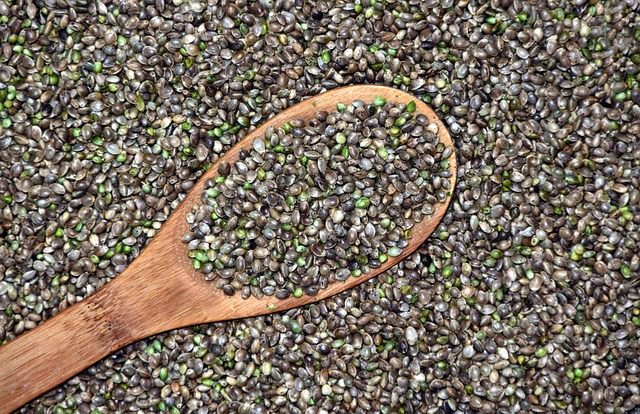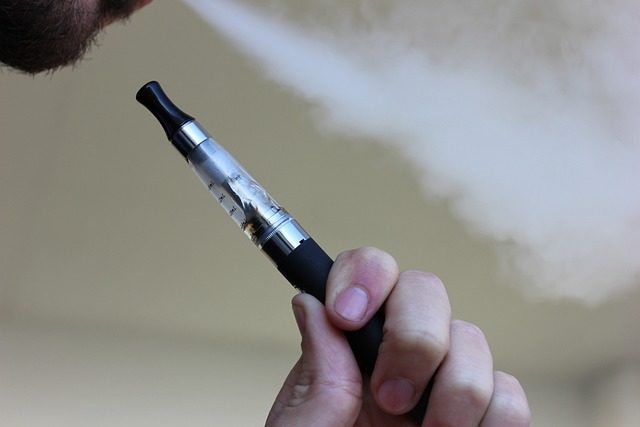Have you ever wondered about the world of cannabinoids beyond THC and CBD? Enter HHC, a unique cannabinoid that has been gaining popularity in recent years. In this blog post, we’ll dive deep into the fascinating history, production, effects, and legality of HHC, exploring how it compares to other well-known cannabinoids like THC and Delta-8. Are you ready to embark on a captivating journey to discover this intriguing compound and learn what is HHC? Let’s get started!
Table of Contents
Short Summary
HHC is a unique cannabinoid derived from hemp plants with distinct properties and effects.
It has mild psychoactive effects, potential therapeutic benefits, and requires caution when consuming it due to risks of side effects.
HHC provides an experience between Delta 8 and 9 THC that makes it a popular choice for those seeking alternative cannabinoid options beyond CBD or THC.
Understanding HHC: The Basics

Hexahydrocannabinol, or HHC, is a cannabinoid discovered in the 1940s that shares similarities with THC, the most well-known psychoactive compound in the cannabis plant. However, HHC’s chemical structure sets it apart, as it contains an additional hydrogen atom compared to THC. This distinction has led some to classify HHC as one of the synthetic cannabinoids, although it is still derived from the cannabis plant.
This unique molecular difference results in distinct properties and effects, making HHC a fascinating subject for enthusiasts and researchers alike.
The Discovery of HHC
The first identification of HHC can be traced back to chemist Roger Adams, who discovered the compound through a hydrogenation process in the 1940s. Initially, this process may have produced some inactive HHC molecules, but over time, the hydrogenation method has been refined to yield a more consistent and pure form of HHC.
Today, HHC can be derived from naturally occurring compounds found in legal hemp plants, making it an intriguing addition to the ever-expanding world of hemp-derived cannabinoids.
HHC’s Chemical Structure
In terms of chemical structure, HHC is quite similar to THC, but with one crucial distinction: it has an extra hydrogen atom. This seemingly small difference has a significant impact on HHC’s properties. For instance, HHC exhibits increased stability and resistance to UV light and heat, resulting in a longer shelf life than other cannabinoids, including some controlled substances.
This unique chemical structure makes HHC stand out among its unusual homologous cannabinoids counterparts.
The Production Process of HHC

Producing HHC typically involves extracting CBD from hemp and then converting it into HHC through a proprietary process involving hydrogenation. This method is crucial for creating high-quality HHC products, as it ensures that safety and quality control measures are in place throughout the production process.
In the following sections, we’ll delve deeper into how HHC is made, from hemp to the final product.
From Hemp to HHC
The journey of HHC begins with hemp-derived CBD, which serves as the foundation for the chemical reaction that produces HHC. Using hydrogenation techniques, CBD is converted into HHC, creating the unique cannabinoid we know today.
This process showcases the remarkable potential of the hemp plant, including cannabis plants, as a versatile source of various cannabinoids, such as intoxicating cannabinoids.
Safety and Quality Control
When it comes to producing HHC, safety and quality control are of utmost importance. Proper lab equipment and safety measures are essential for creating high-quality HHC products, ensuring that consumers receive a product that is both effective and safe.
By adhering to these stringent standards, HHC manufacturers can guarantee the purity and potency of their products.
For more info, visit All about HHC safety
Effects and Potency of HHC
While HHC shares some psychoactive properties with THC, it is important to note that its potency can vary, and its potential therapeutic benefits still require further research. That being said, users often report experiencing a high that falls between Delta-8 and Delta-9 THC in terms of intensity.
In the next sections, we’ll explore HHC’s psychoactive properties and potential therapeutic benefits in more detail.
Psychoactive Properties
HHC is known to produce mild psychoactive effects, similar to those caused by THC, although its potency can be inconsistent due to the mixture of different forms. Users report the high from HHC is calming in comparison to Delta-8 THC. This makes it less stimulating than Delta-9 THC.
While HHC’s effects may be appealing to some, it’s essential to approach consumption with caution, especially for those new to cannabinoids.
Therapeutic Benefits
As for HHC’s therapeutic potential, some studies suggest it may possess pain-blocking and anti-cancer properties. However, it’s important to emphasize that more research is needed to confirm these findings and fully understand HHC’s therapeutic benefits. Until then, it’s crucial for users to approach HHC with caution and consult a healthcare professional before incorporating it into their wellness routine.
HHC Products and Consumption Methods

With growing interest in this unique cannabinoid, a variety of HHC products have emerged on the market, offering different consumption methods to cater to individual preferences. From vape cartridges and edibles to tinctures and topicals, there’s an HHC product to suit every taste and need.
Let’s take a closer look at these options and how they can be enjoyed.
Vape Cartridges
Vape cartridges containing HHC offer a convenient and popular method of consumption, allowing users to enjoy the cannabinoid’s effects quickly and discreetly. As with any vaping product, it’s essential to purchase HHC vape cartridges from reputable sources and use them responsibly to ensure a safe and enjoyable experience.
Edibles
For those who prefer not to smoke or vape, HHC edibles, including hhc gummies, provide an alternative method of consumption. Gummies, candies, and other infused treats offer a tasty and discreet way to enjoy HHC’s effects.
As with all edibles, it’s essential to start with a low dose and gradually increase as needed or directed by a healthcare professional.
Tinctures and Topicals
Tinctures and topicals offer another non-smokable option for HHC consumption. Tinctures are liquid extracts taken orally, while topicals are cannabis-infused products intended for direct skin application to provide localized relief. These methods allow for targeted application and potential therapeutic benefits, making them a popular choice for those seeking an alternative to traditional consumption methods.
The effects of tinctures and topicals are typically felt within minutes, and the effects of tinctures and topicals are typically felt within minutes.
Legality and Regulation of HHC
Navigating the legality of HHC can be a complex endeavor, as its legal status is subject to both federal and state laws. While some states may ban or restrict the sale and use of HHC, its future legal status remains uncertain.
In the following sections, we’ll delve deeper into the intricacies of HHC’s legality and the factors that may influence its future regulation.
Federal and State Laws
At the federal level, HHC may be considered legal under the Agriculture Improvement Act of 2018, also known as the 2018 Farm Bill, which legalized hemp-derived cannabinoids. However, individual states may still enforce bans or restrictions on the sale and use of HHC, making it crucial for consumers to familiarize themselves with the regulations in their region.
It is important to understand the hhc legal landscape before making any purchases or using any products.
The Future of HHC Legality
The future of HHC’s legality is far from certain, as it depends on further regulation and potential changes to federal and state laws. As the cannabinoid market continues to evolve, it remains to be seen how HHC will be regulated and whether it will become more widely accepted or face increased restrictions in the legal cannabis market.
The legal landscape surrounding HHC is constantly changing, and it is important to stay informed of the legal landscape surrounding HHC.
Safety, Risks, and Side Effects of HHC
Due to limited research, the safety, risks, and side effects of HHC are not well understood. However, some known side effects include anxiety, dry mouth, and insomnia.
It’s essential for users to exercise caution when consuming HHC products, including hhc acetate, and to be aware of potential side effects and interactions with other medications.
Known Side Effects
Users should be aware of potential side effects associated with HHC consumption, such as anxiety, dry mouth, and insomnia. While these side effects may be mild for some, they can be more pronounced in others, making it crucial for users to exercise caution.
Consulting a healthcare professional is recommended if they experience any adverse reactions.
Research Limitations
The lack of extensive research on HHC’s safety and effects highlights the need for further studies and understanding. As more research is conducted, we can gain a clearer picture of HHC’s potential benefits and risks, allowing users to make informed decisions about their consumption.
Until then, it’s essential to approach HHC with caution and to stay informed about the latest findings in this rapidly evolving field, including existing and emerging modalities.
Comparing HHC to Other Cannabinoids
HHC shares similarities with other cannabinoids like THC and Delta-8, but its unique chemical structure and properties set it apart. In the following sections, we’ll delve deeper into how HHC compares to these well-known cannabinoids, shedding light on the distinct characteristics that make HHC a captivating subject for enthusiasts and researchers alike.
HHC vs. THC
While HHC and THC both produce psychoactive effects, HHC’s hydrogenated structure results in distinct properties and a longer shelf life compared to THC. Users often report that HHC’s high falls somewhere between Delta-8 and Delta-9 THC in terms of intensity, making it an interesting option for those seeking a unique cannabinoid experience.
HHC, a high potency cannabis sativa derivative, is gaining popularity among cannabis users due to its unique effects and longer shelf life.
HHC vs. Delta-8
HHC’s effects are often compared to Delta-8 THC, with users reporting a high that falls between Delta-8 and Delta-9 THC in terms of intensity. This unique position in the cannabinoid spectrum makes HHC an intriguing option for those looking to explore the world of cannabinoids beyond the more well-known THC and CBD.
HHC offers a unique experience that is not found with other cannabinoids, making it an attractive product.
Summary
In conclusion, HHC is a fascinating cannabinoid with unique properties and effects that set it apart from its more well-known counterparts, THC and Delta-8. From its intriguing history and production process to its varying potency and potential therapeutic benefits, HHC offers a captivating glimpse into the ever-expanding world of cannabinoids. As research continues to evolve, we eagerly await new insights and discoveries that will help us better understand this enigmatic compound and its place in the cannabinoid landscape.
Frequently Asked Questions
Does HHC get you high?
HHC can provide a pleasant feeling to users, though its exact effects are not fully understood yet.
Some people report similar effects to traditional THC products.
What does HHC do for you?
HHC, or Hexahydrocannabinol, is a lesser-known cannabinoid with unique medicinal properties that are believed to have potent pain-relieving, anti-inflammatory, and anti-anxiety effects similar to THC.
It may also help with improving mood, sleep, and appetite.
How is HHC different from CBD?
HHC is more potent than CBD and has psychoactive effects that can make you’stoned’ if taken in large amounts. CBD doesn’t have the same strong effects, but both share therapeutic, analgesic, anti-inflammatory, anti-seizure, and anti-cancer properties.
HHC also has a higher chance of showing up on a drug test.
Does HHC show up on drug tests?
HHC is not commonly tested for in drug screenings, but it’s possible that its metabolites may produce a false positive result.
It’s best to be cautious and avoid HHC if you have an upcoming drug test.
What is hhc in medical terms?
Home Health Care (HHC) refers to skilled nursing and therapeutic services provided in the patient’s home or place of residence. It is certified by the Social Security Administration to be eligible for participation under Medicare and must comply with hand hygiene regulations.









